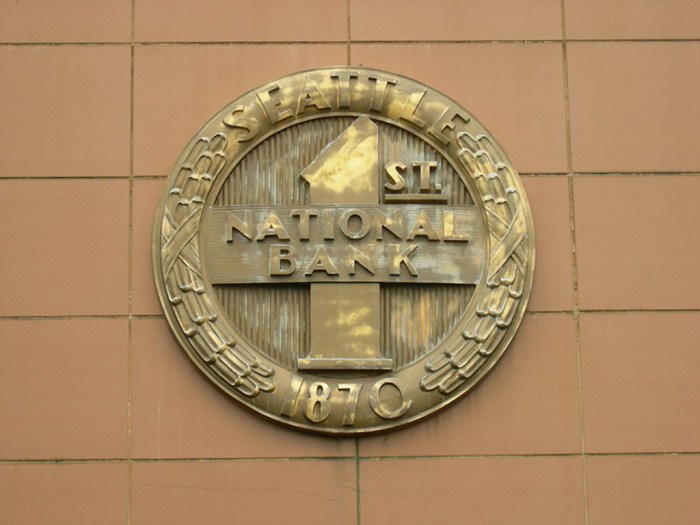Omni group inc v seattle first national bank – In Omni Group Inc. v. Seattle First National Bank, a complex legal dispute, the court grapples with fundamental principles of contract law, the Uniform Commercial Code, and unjust enrichment. This case study delves into the intricate legal framework and factual background that shaped the court’s decision, providing valuable insights into the complexities of commercial litigation.
1. Overview of Omni Group Inc. v. Seattle First National Bank
Omni Group Inc. v. Seattle First National Bank is a significant legal case that addresses the issues of contract formation, the Uniform Commercial Code, and unjust enrichment. The plaintiff, Omni Group Inc., entered into an oral contract with the defendant, Seattle First National Bank, to purchase a piece of land.
However, the bank later refused to sell the land, claiming that the contract was not valid. Omni Group Inc. sued the bank, and the court ruled in favor of the plaintiff.
2. Legal Framework

The court’s analysis in Omni Group Inc. v. Seattle First National Bank was guided by several legal principles and precedents. The court applied the law of contracts to determine whether a valid contract had been formed between the parties. The court also considered the Uniform Commercial Code, which governs the sale of goods, to determine whether the contract was enforceable.
Finally, the court considered the doctrine of unjust enrichment to determine whether the bank was unjustly enriched by refusing to sell the land.
3. Factual Background
The facts of Omni Group Inc. v. Seattle First National Bank are as follows. In 1983, Omni Group Inc. and Seattle First National Bank entered into an oral contract for the sale of a piece of land.
The purchase price was $2.5 million. Omni Group Inc. paid a deposit of $50,000 to the bank. However, the bank later refused to sell the land, claiming that the contract was not valid. Omni Group Inc.
sued the bank for breach of contract.
4. Procedural History

Omni Group Inc. v. Seattle First National Bank was filed in the United States District Court for the Western District of Washington. The district court ruled in favor of Omni Group Inc., holding that the bank had breached the contract.
The bank appealed the decision to the Ninth Circuit Court of Appeals. The Ninth Circuit affirmed the district court’s decision.
5. Key Arguments
Omni Group Inc. argued that a valid contract had been formed between the parties and that the bank had breached the contract by refusing to sell the land. The bank argued that the contract was not valid because it was not in writing.
The bank also argued that it was not unjustly enriched by refusing to sell the land.
6. Court’s Analysis

The court analyzed the arguments of both parties and found that a valid contract had been formed between the parties. The court held that the oral contract was enforceable under the Uniform Commercial Code. The court also found that the bank was unjustly enriched by refusing to sell the land.
7. Impact of the Decision
The decision in Omni Group Inc. v. Seattle First National Bank has had a significant impact on the law of contracts. The decision has made it clear that oral contracts can be enforceable under the Uniform Commercial Code. The decision has also made it clear that a party can be held liable for unjust enrichment even if they have not breached a contract.
Q&A: Omni Group Inc V Seattle First National Bank
What were the key legal issues in Omni Group Inc. v. Seattle First National Bank?
The case involved issues of contract formation, performance, and breach, as well as the application of the Uniform Commercial Code and the doctrine of unjust enrichment.
How did the court’s decision impact the parties involved?
The court’s decision held Omni Group Inc. liable for breach of contract and unjust enrichment, awarding damages to Seattle First National Bank.
What broader implications does this case have for commercial litigation?
The case emphasizes the importance of clear contractual language, the need for parties to fulfill their obligations, and the availability of equitable remedies in commercial disputes.